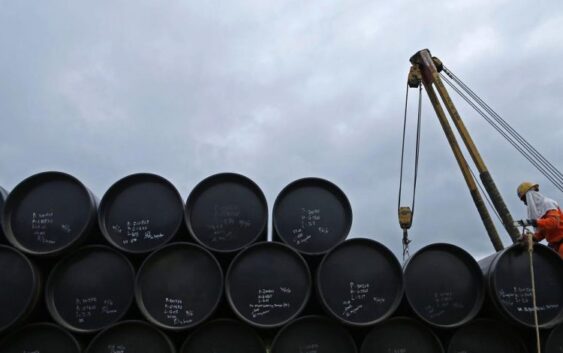- GPA ANNOUNCED PLANS TO BUILD SECOND LANDER BRIDGE IN THE GAMBIA
- HOW CAMEROON AVIATION SAFETY KEEPS IMPROVING BUT FALLING SHORT OF INTERNATIONAL STANDARD
- NWSC SET TO IMPROVE WATER INFRASTRUCTURE IN UGANDA
- CHINESE FIRM TO EMBARKED ON SEWERAGE SYSTEM PROJECT IN RWANDA
- TOGO GOVT. LAUNCHED TUTUDO PROGRAM TO TRAIN 500 PEOPLE ON ENERGY-RELATED PROFESSIONS
HOW TANZANIA CAN REDUCE PETROL-IMPORT DEPENDENCY

Indian top players in the energy sector have argued that Tanzania can also reduce fuel import bills like India if it turns to producing ethanol from sugarcane or agricultural residues.
The ethanol will reduce the amount of importation by blending it with petrol.
They said this would complement the already available Compressed Natural Gas (CNG) from Mtwara Region.
The agricultural residues include rice straw, wheat straw, rice husk and corn stover, which are mostly left on the fields after harvests and used for fodder and landfill material or burnt in many places.
Speaking to Tanzanian journalists on their study tour here in Pune City, heads of different oil companies also offered possibilities of Tanzania to replace fossil fuels with cleaner fuels.
Praj Industries Limited Assistant Vice-President, Tushar Patil said Tanzania has biofuel potentials in agriculture through cassava and sugarcane, which are abundantly grown in the country.
Praj Industries is the global bioethanol technology and engineering company operating in more than 70 countries and in Africa, they have more than 50 projects in biofuel.
“To produce biofuels, robust supply chain development with the help of a policy framework is needed,” he said.
He argued that if a strong policy framework is there to put in place good ecosystem, the foreign investments can take place.
He noted that their company was ready to share knowledge with developing countries, including Tanzania.
According to him, biofuels production can also benefit rural areas through employment and introducing carbon footprints that address climate change.
Further, it reduces imports, saves forex and most importantly, increases farmers income.
According to him, the Indian government endorsed a National Policy on Biofuels in 2018, which, among others seeks to achieve a target of 20 per cent blending of ethanol in petrol by the year 2025-26.
“Tanzania has similar conditions to India for having agriculture potentials to offer feedstock for ethanol production,” he said.
On his part, Praj Head, Business Development, Africa, Makarand Joshi, said following the decision to blend ethanol with petrol, currently India saves $6.7 billion annually because of reduced petrol importation.
Mr Joshi said for Tanzania, which also has sugar factories can produce ethanol from molasses as feedstock.
Molasses is thick, dark brown liquid that is produced during the process of making sugar.
“Cassava could be another potential crop for Tanzania to produce ethanol because the country produces between 8-10 million tonnes annually, and it is a perishable commodity unless assured of offtake from farmers,” he pointed out.
He argued that this will also develop the value chain for cassava.
On his part, Mr Anurag Saraogi, Chief General Manager (Bio Fuels), Bharat Petroleum Corporation Limited (BPCL), advised Tanzania to increase sugar production so as to produce enough molasses for ethanol production.
“As far as grain is concerned, the country will have to decide based on food-fuel factor. In India, we have been able to use surplus grain produced,” he said as he gave alternatives of the use of agricultural straw.

